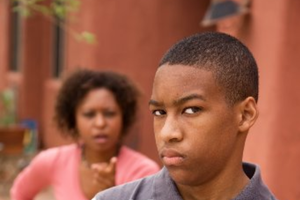Taming the ugly face of sibling rivalry

When buying gifts, ask each child what they would prefer.
What you need to know:
- Sibling rivalry and hatred often occur when one child in the family is perceived to be getting preferential treatment or extra attention from the parents.
- Sibling rivalry hits its fever pitch between the ages of 7 and 12
- Positively harness their rivalry to foster each child’s ability to solve problems, resolve conflicts, examine situations, compromise and work together as a team
Sibling rivalry is perhaps the only deficiency that affects even the neatest of families. Too much rivalry during childhood can easily metamorphose into hatred among your children and can leave a trail of questions, feelings of self-doubt, self-blame, and shame in its wake.
“One minute my children are getting along, laughing and helping each other, and the next, they are at each other’s throats, fighting over everything,” says Tabitha, whose three children are aged 12, 10, and 5 years. The older children claim that she doesn’t love them as much as she loves her lastborn. “My two older kids hate their younger sister. This hatred gets so cold at times that I wonder if there is something I am doing wrong as a mother,” she says, “I would like to imagine that they are going through a phase of throwing tantrums. But some of the things and actions they direct at their younger sister are spiteful.”
Lisa Achieng’, a 35-year-old mother of two boys says her sons seem to be in an endless confrontation over who gets what in the house. While she has tried to put her foot down, her attempts have been in vain. “One of them always claims that I don’t love him as much as I love his brother.” The resentment between them began two years ago when she bought them different gifts. “I went on a business trip to Uganda. On my way back, I brought them a pair of shoes and a leather jacket.” However, her firstborn son, David, did not like his gift. “He thought that his younger brother’s shoes were more valuable. Since then, he hardly wears the jacket,” she says. Her sons are aged 9 and 7.
Sibling rivalry and hatred often occur when one child in the family is perceived to be getting preferential treatment or extra attention from the parents. “Every family has its pool of emotional and material resources, and kids will often be in a struggle to access these resources,” says child therapist Gloria Wandeto. In most cases, children will begin to treat each other coldly by exhibiting peculiar dislike for one another, have verbal outbursts, and even violent, confrontational attitudes. For instance, if a young one has just been born into the family, the older child may resent any association with her out of fear that she will consume the love and space that he or she previously enjoyed.
According to Gloria, rivalry or hatred among children is flared up by numerous factors including sex, age, and personality of the children. “Your family’s size is also critical and influential. If your family is not big and is well blended, then you are bound to witness fewer acts of rivalry.” In most cases, sibling rivalry hits its fever pitch between the ages of 7 and 12. “It’s around this age that your children are more physically stronger and opinionated,” says Gloria. Among older children though, sibling rivalry may be due to personality clashes. This is especially so among children in their early teens who see and interact with each other on a daily basis. Strikingly, children who are not close, or who rival or hate each other unabated in their childhood hardly become close in their adulthood.
Although parental preferences are a common bone of contention among children, Gloria says that they are normal. “It is nearly impossible for a parent to love all her children in exactly the same way. They are different persons with different characters and tastes, and will consequently elicit different reactions in a parent.” However, she cautions that you should be careful not to show your affections in a biased way or try to impose the character and personality of one child on the other children. “Positively harness their rivalry to foster each child’s ability to solve problems, resolve conflicts, examine situations, compromise and work together as a team,” she adds. If your older child appears to hate a new baby or a younger sibling, try and draw them into talking about what they think the child needs. “Let them tell you what the child may need when she’s crying or throwing a tantrum. This will create a bond of affection between them.”
According to Dr. Jonathan Caspi, a family therapist and the author of Sibling Aggression: Assessment and Treatment, holding one on one meetings with all your kids will go a long way in neutralising sibling rivalry and its emotional repercussions. “There won’t be any competition for your attention when you have one on one meetings with each of them. There also won’t be any perceived winners or losers. These meetings will give you the opportunity to praise and correct every child without an audience from his or her siblings,” he says. The result of these meetings will be a closer parent-child relationship with each of your children.
Factors that influence rivalry and fights among siblings
Evolving needs and wants
Your babies will portray certain tendencies as they develop. These tendencies can be the source of conflict and rivalry. For example, during the toddler stage, your children will be quite protective and possessive of their toys. They may react aggressively to protect what they see as theirs. During school age, your children will get a sense of fairness, equity, and equality. This is the stage where they will start thinking that one of them is getting preferential treatment. During teenage, your children will be developing their own independence and individuality. They may start to rebel when asked to do house chores or look after their younger siblings.
Temperaments
Your kids will not behave in the same way. Their moods, adaptability, and personality will vary, resulting in conflicts. For instance, one of your children may be introverted while the other is extroverted. These personalities and the needs that come with them could lead to sibling rivalry and distorted perceptions about the position each sibling occupies in the family.
How to neutralise hatred and extreme rivalry among your kids
- Family respect: Create an environment of mutual respect in your family. Note that you are their biggest example. Set a clear framework of manners and teach your children how to compromise without name-calling.
- Emotions: Acknowledge your child’s anger rather than just rebuke her or send her away. This way, they won’t feel punished and unworthy.
- Limits: Avoid getting drawn into their tantrums and arguments unnecessarily. That way, you will not appear to have favourites or act biased. Bear in mind that in any argument that your kids bring to you, they will in one way or another seek to have you take sides.
- Accusations: Resist one-sided accusations. For instance, if one of your children comes to you with a host of accusations against his or her sibling, reflect on their feelings but only guide them to work it out.
- The fairness game: Don’t get dragged into the fairness game. When buying gifts, ask each child what they would prefer.
- Comparison games: Avoid comparisons. Treat each child as a uniquely gifted child with their strengths and qualities.





